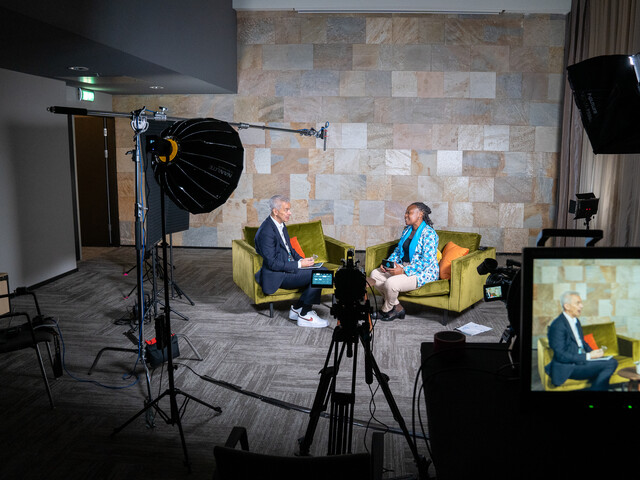
Media organisations come to IRC for globally-significant expertise on water, sanitation and hygiene and systems change
Uganda Radio Network | By Caroline Ayugi and Frank Openytho | Rwot Kassimiro Ongom, chief of the Patongo Clan, thinks that River Agago is losing its life because of the poor relationship between people and vegetation. Restoring the old practices helping to nurture and prolonging natural resources is the only way to save the river. Every year, Agago district in northern Uganda suffers severe flooding from May to August and drought from November to March. Most people in the region are crop farmers and rely on the River. "Whenever we receive little rainfall, the river dries up in January and February, leaving only a patch of water around the bridge. This forces people to go looking for boreholes water in distant places," says John Opiyo, a resident. During an advocacy campaign to save Agago River Catchment by WASH Alliance International partners implementing the WASH SDG programme in the region, Martin Watsisi, the Regional WASH Advisor at IRC Uganda decried the open defecation in the community, saying it is one of the major ways water is being polluted. "A person who doesn't appreciate sanitation and still defecates in the open should not be given water. Water becomes even more dangerous to that person because they can't keep a safe water chain," Watsisi said. Read more.
Published by NTV Uganda October 2023
Produced by the Monitor Newspaper, Uganda on Sunday, March 12, 2023
Published by Partos in the October 2023 Partos Magazine, as one of the 45 best stories on Innovation and Impact within international cooperation, by members of Partos.
India News Diary | by Anjuray, 11 May 2023. Report on the joint workshop on "WASH Sector Reflections: a Focus on Odisha" organised by IRC, SuSanA India, Water For People India, WaterAid and UNICEF with the state government of Odisha. Participants focused on the sustainability and WASH services and systems strengthening,
New Vision article on WASH Alliance activities in Agago district to help end open defecation and improve access to water and sanitation around the Aswa river catchment. Read more.
New Vision: Agago in northern Uganda is a district with weather extremes. The Uganda WASH Alliance which includes IRC Uganda is active there. Read more.
Ghana News Agency | Ghana | By Samuel Doodo - the Coalition of NGOs in water and sanitation (CONIWAS), has reaffirmed its support to for government to enact legislation to establish a National Sanitation Authority. Read more.
Modern Ghana | Ghana | By Abubakari Wumbei - Ghana Coalition of NGOs in Water and Sanitation (CONIWAS) and its strategic partners commend Government of Ghana's committment to a presidential compact to make universal access to WASH for all Ghanaians reality. Read more.
Capital Ethiopia | Ethiopia | By Muluken Yewondwossen - Recent series of global summits on water will provide instrumental input for the upcoming national Multi Stakeholders Forum (MSF) that will be held towards the end of this month, experts opine. The reflective success elements drawn from the UN 2023 Water Conference and All System Connect (ASC) Symposium, which this year were cited as fruitful, have been stated as a good drawing board for Ethiopia to propel its water and WASH sector development. Read more.